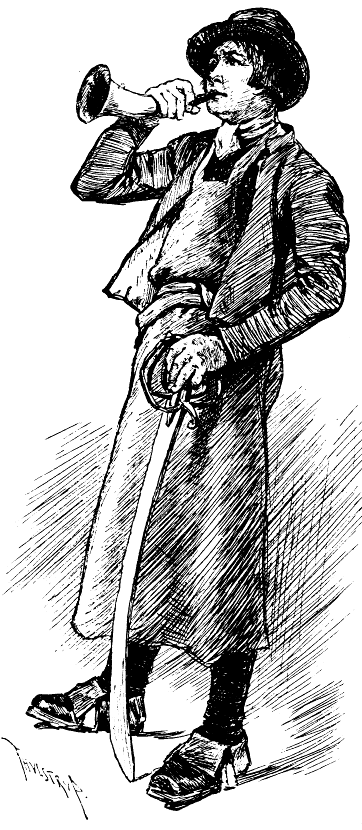The Spartan king Archidamus was fined for marrying a petite woman.
Famine
During World War II at least 20 million people died worldwide from starvation and malnutrition.
(Collingham, The Taste of War, page 1)
You Want Victory Cabbage and Democracy Dressing With That Liberty Dog?
I met a woman at a party recently who told me that when she was growing up, the members of her family were such New York Knicks fans, they didn’t even buy Boston lettuce.
Which reminded me—during World War I, when America was at war with Germany, Sauerkraut became “victory cabbage.” Frankfurters were called “liberty sausages,” and eventually morphed into “hot dogs.” Because the British were at war with Germany during both the World Wars, German shepherd dogs in Britain were called Alsatians.
 And as recently as 2003, when France opposed the American (sorry, the Coalition of the Willing) invasion of Iraq, Congress voted to demonstrate its anti-France sentiments by renaming . . . French fries. They became “freedom fries.” (As American opposition to the war grew, the name faded away.)
And as recently as 2003, when France opposed the American (sorry, the Coalition of the Willing) invasion of Iraq, Congress voted to demonstrate its anti-France sentiments by renaming . . . French fries. They became “freedom fries.” (As American opposition to the war grew, the name faded away.)
 But this one’s my favorite: in 1953, and for six seasons, the Cincinnati Reds changed their name to the Redlegs, thanks to the anti-Communist “red” scare. Amazing, isn’t it?
But this one’s my favorite: in 1953, and for six seasons, the Cincinnati Reds changed their name to the Redlegs, thanks to the anti-Communist “red” scare. Amazing, isn’t it?
Images from Wikimedia Commons
The Dregs
In many 19th century London pubs, dregs from drinks were dumped into a basin, prior to the glasses being washed. The contents of the basin were then sold to the poor.
Flanders, The Victorian City (171)
Reading the Riot Act
The Riot Act, which is now just used as an idiom, was an actual legal procedure, first imposed in England in 1715. The act was read to the ‘riotous assembly’ with the promise that no force would be used for one hour, allowing the crowd time to disperse.
Flanders The Victorian City, 372 (note)
Unlawful
“The first thing we do, let’s kill all the lawyers” is a commonly quoted line. It comes from Shakespeare’s Henry VI Part 2.
Wake Up Calls
The father of my friend Carrie is a lawyer, and he used to travel frequently. One morning, quite early, Carrie called him at his hotel room in Dallas, where he was staying on business, to ask him a question about something.
She heard a fumbling, and then his sleepy voice: “Thank youuuu,” he said, and hung up on her.
 What did people do before wake-up calls, alarm clocks, and pre-programmed iPods? How did sleep-deprived workers who had to be up and at their jobs before dawn rouse themselves?
What did people do before wake-up calls, alarm clocks, and pre-programmed iPods? How did sleep-deprived workers who had to be up and at their jobs before dawn rouse themselves?
Judith Flanders addresses this subject in her new book, The Victorian City.
Wind-up alarm clocks were not invented until 1876. Most working people couldn’t afford clocks of any sort. Clock towers that chimed the hour existed not just to make a quaint and picturesque village quainter and more picturesque—they served a real purpose in telling people what time it was.
 According to Flanders, prior to the mid-1800s the watch patrolled London streets, carrying rattles and calling out the half hour. (In other European cities, the watchman might blast his horn on the half hour–all night long.) For a small fee, a watchman would rap on the doors of people who needed to be up at a specific time. (22) The very poor would rely on fellow workers to rouse them on their way home from their night shifts.
According to Flanders, prior to the mid-1800s the watch patrolled London streets, carrying rattles and calling out the half hour. (In other European cities, the watchman might blast his horn on the half hour–all night long.) For a small fee, a watchman would rap on the doors of people who needed to be up at a specific time. (22) The very poor would rely on fellow workers to rouse them on their way home from their night shifts.
A watchman in Mora, Dalecarlia (Dalarna), Sweden. From Harper’s new monthly magazine. Volume 67, Issue 401, October 1883
Clock tower in Gibraltar, by Paul [CC-BY-SA-2.0 (http://creativecommons.org/licenses/by-sa/2.0)], via Wikimedia Commons
Got Milk?
Up until the late 1800s, milk vendors in London’s St. James Park brought their cows to supply milk on demand to nursemaids and children out for their daily walk.
Flanders, Inside The Victorian Home, 391
The Grind
 I love to cook, and my Italian mother did, too. Most weekends of my childhood I watched my mother knead a huge mound of bread dough. Sometimes I helped, but I tired quickly at that task. Kneading enough dough for half a dozen loaves is hard work. (Nowadays I use Mark Bittman’s amazing no-knead recipe.)
I love to cook, and my Italian mother did, too. Most weekends of my childhood I watched my mother knead a huge mound of bread dough. Sometimes I helped, but I tired quickly at that task. Kneading enough dough for half a dozen loaves is hard work. (Nowadays I use Mark Bittman’s amazing no-knead recipe.)
I just finished a very cool book by Bee Wilson, called Consider the Fork: A History of How We Cook and Eat. Wilson cites a fourteenth century recipe for pancakes:
“First, get a quart-sized copper pan and melt a large quantity of salted butter. Then take eggs, some ’warm white wine’ (this takes the place of our milk) and ‘the fairest wheaten flour’ and beat it all together ‘long enough to weary one person or two.’” (147)
As Wilson says, “there is a startling nonchalance in this ‘one person or two.’” It suggests that in better houses, kitchens had platoons of servants standing at the ready to take over the beating (and grinding and rolling and kneading) duties when one underling wearied.
Wilson also cites the toll such grinding took on (mostly female) bodies. Middle Eastern burial sites have shown female skeletons with signs of severe arthritis in the knees, hips, and ankles, from grueling hours of kneeling and grinding grain. (153)
 It does humble one to think how much harder it was to prepare a meal in the days before electricity, gas stoves, and refrigeration.
It does humble one to think how much harder it was to prepare a meal in the days before electricity, gas stoves, and refrigeration.
I’m off to lie on the couch to listen to the reassuring hum of all my 21st century appliances.
Pieter Aartsen, (circa 1508–1575), The Pancake Bakery, [Public domain], via Wikimedia Commons
Servant kneading dough, Egypt, Old Kingdom, 5th Dynasty Nelson-Atkins Museum of Art, Kansas City, Missouri,By Daderot (Public domain or Public domain], via Wikimedia Commons
Gunsmoke
In Civil War battles, the powder used as propellants in the rifles quickly blanketed a battlefield in black smoke. Officers often had to get down on all fours to determine enemy troop positions.